I like the gym because there are people who look like me. Some of us could lose a few pounds. Many of us require some gentle motivation. None of us is able to lift as much as we did decades ago. Wanna know who will be standing on the podium in Tokyo in 2020? No one from our group. Mortgage the farm.

My buddies and I meet at the gym a few days a week. Sometimes we go for a run before lifting weights. Frequently we will have a coffee, a smoothie, or a guilty muffin after. The membership requirements are straightforward: a few dollars a month, a willingness to show up, the good fortune to belong to a social class where we do not work 70 hours a week to afford medications for a sick child. We are privileged and grateful.

Every club has a cost of entry. A member of the high school yearbook staff should have a good eye for layout and be willing to put in hours after school. A member of the Doctors Club should probably know what a molecule is and understand why people have kidneys. Social clubs require social skills. Members of book clubs read books. Even clandestine societies require knowledge of the secret handshake. Every group or association necessitates knowledge or commitment or ability or something. There is a “cost” of participation.
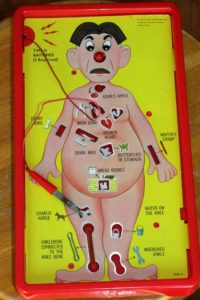
Except the Pot Smokers Club for 15-year-olds. There is no cost of entry. Show up. Get stoned. Laugh hysterically at the realization that “cat” and “dog” both have three letters. Eat two 40-ounce boxes of Captain Crunch. Stare into the distance in a meaningful way. Play a few rounds of “Find your Foot.” Become alternatively elated and depressed that you have the same number of fingers as toes. Affirm that you would be achieving in the classroom except that you are smarter than all your teachers all of whom hate you for no reason. Pretend Yoda you are.
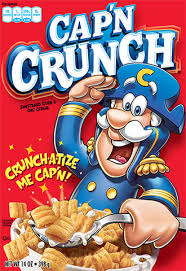
Why 15-year-old Percy joined the P.S.C. is a question for a more insightful author than I. Maybe Percy is self medicating to reduce stress. Maybe Percy doesn’t have the skills or commitment for marching band. Maybe the only club that would have Percy is the P.S.C.
But what Percy does not have is a strong connection with the sensible adults in his life. Because no sensible adult is going to allow Percy to be a member of the Pot Smokers Club. Not when Percy is 15 years old anyway.
Fast forward to opioid addiction. I know, I know. The vast majority of P.S.C. members do not become IV heroin users. But the vast majority of heroin users did start their substance abuse with pot. Which of these narratives seems more intuitive? “My dad and I did everything together when I was growing up. We read books, went fishing, hung out. He encouraged me to do what I wanted–play sports, date girls, learn masonry. He knew I sucked at math so he never said a word when I got a D in pre-cal and then dropped the course.” So far, so good. What about the next part? Does this make sense: “When my dad went to bed, I snuck out, smoked pot, stole Percocet, burgled cars, and ended up with a $400/day habit.” Nah. It doesn’t scan. This story just doesn’t ring true. That connected dad would have known about the first puff and intervened right then and there. That kid would have known that his dad wanted his son to grow up healthy and whole and that pot was not an option. The first half of the paragraph is real; the second part is fiction.
Here’s the story that makes more sense: “My dad was always yelling at me about everything, chores around the house, grades at school. He told me what to do but he never cared what I thought. He told me who to be, but he never knew who I was. He didn’t know what was important to me. I started using and all my dad did was keep yelling. I had stopped listening years before.” This chronicle rings true. That misunderstood kid could end up with a severe addiction issues.

The smart money in addiction recovery is on community, commitment. In NA we have sponsors, people to whom we can turn when we feel adrift. In NA we have meetings. We connect with other folks who look like us, who know about craving, who have experienced that “dark three a.m. of the soul.” We are taught to avoid HALT–hungry, angry, lonely, tired. Lonely is the adjective that concerns me the most.
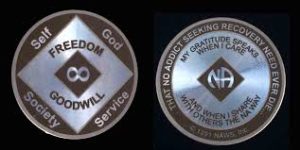
Juno Diaz was talking about underrepresented kids when he wrote: “There’s this idea that monsters don’t have reflections in a mirror… It’s that if you want to make a human being into a monster, deny them, at the cultural level, any reflection of themselves. And growing up, I felt like a monster in some ways. I didn’t see myself reflected at all.” Diaz could have been writing about people with substance abuse disorder. To see yourself clearly, you have to have someone somewhere who sees you, knows you, loves you for who you are. If that person who accepts you unconditionally is a parent, the odds are good that you can avoid the unrelenting misery that is substance use disorder. If you don’t exist, in the mirror, in the culture, in the eyes of a loving parent, anything can happen, none of it any good.
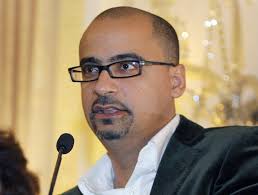
I’m not blaming the dad in the second scenario any more than I’m blaming the son with the substance use disorder. Blame doesn’t cure addiction; community does. I’m just saying that the more connected you are to your kids, the less likely they are to require Narcan to keep them alive. Your mission, should you choose to accept it, is to stay connected to your kids. And feel free to substitute “sacred trust” for “mission” in the above sentence. Because it’s important that your kids choose the right club.
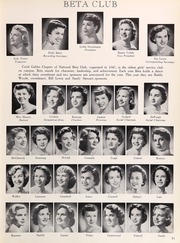



One thought on “Clubbing”
Seems that addicts are born into many loving families but those with the most parental / family and fellowship support are the most likely to successfully recover. Thank you, as always, for your thoughtful writings.